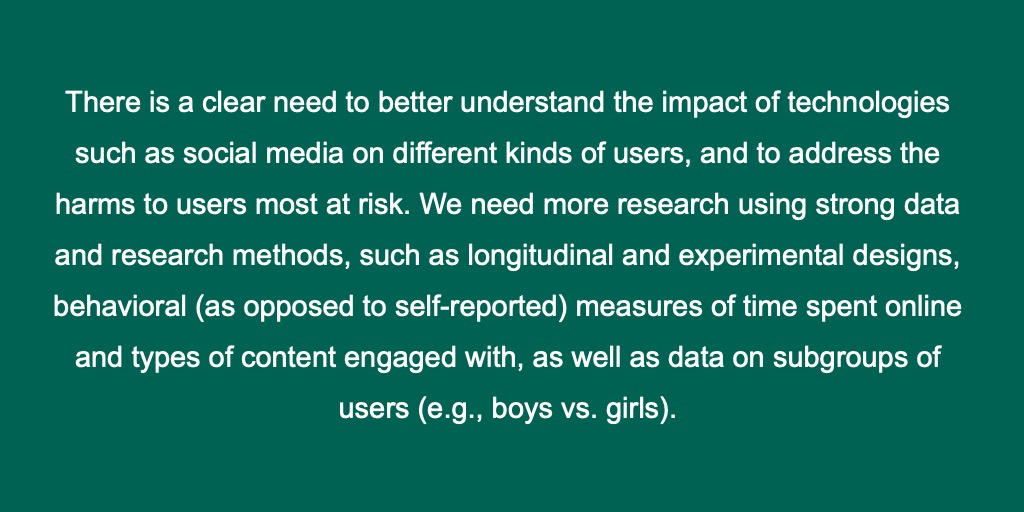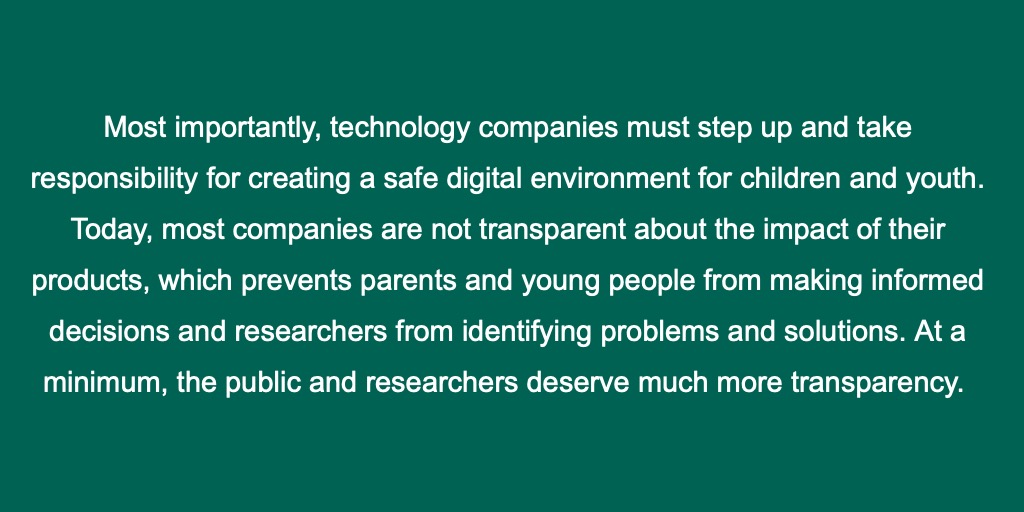
Speaking as a scientist who's mostly interested in youth mental health and evidence-based policymaking in the digital age, I think this #YouthMentalHealth Advisory by @Surgeon_General and his team provides a pretty cool overview of the existing science. 🧵(1/7)
https://twitter.com/ShuhBillSkee/status/1468191327355654144
First, grounding. The @Surgeon_General doesn't mince words, technology and #YouthMentalHealth are impeded and inseparable from broader determinants. (2/7) 

Second, realism. The @Surgeon_General is aware of this historic trends and our visceral reactions. Without being reactive, the report communicates why we link tech to #YouthMentalHealth. (3/7) 

Third, dynamism. Instead of getting stuck at a dumb, yet insanely profitable, impasse over sloppy research practices the @Surgeon_General just cuts to the chase. (4/7) 

Fourth, I think @Surgeon_General can get away with this because he knows the self-report data is just statistical noise mining at the point. Unless we step up evidence he's leaving society in a panic-doubt loop. (5/7) 

Which is what I think makes, fifth, the demands on #BigTech somewhat radical (and kinda of cool). There is zero evidence for any of these, but they're statements of values! It's not backwards looking like the thought leaders (who can only turn back the 🕰️) it's a challenge (6/7) 

Finally, none of this lets @Meta @YouTube @Snapchat @tiktok_us off the hook on #YouthMentalHealth science. Without getting hung up on junk science or fear mongering, the @Surgeon_General call to action is crystal clear. Give it a read! (🧵end)
hhs.gov/sites/default/…
hhs.gov/sites/default/…

• • •
Missing some Tweet in this thread? You can try to
force a refresh






